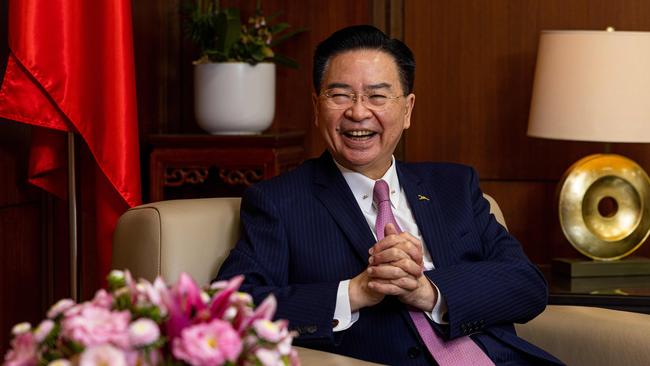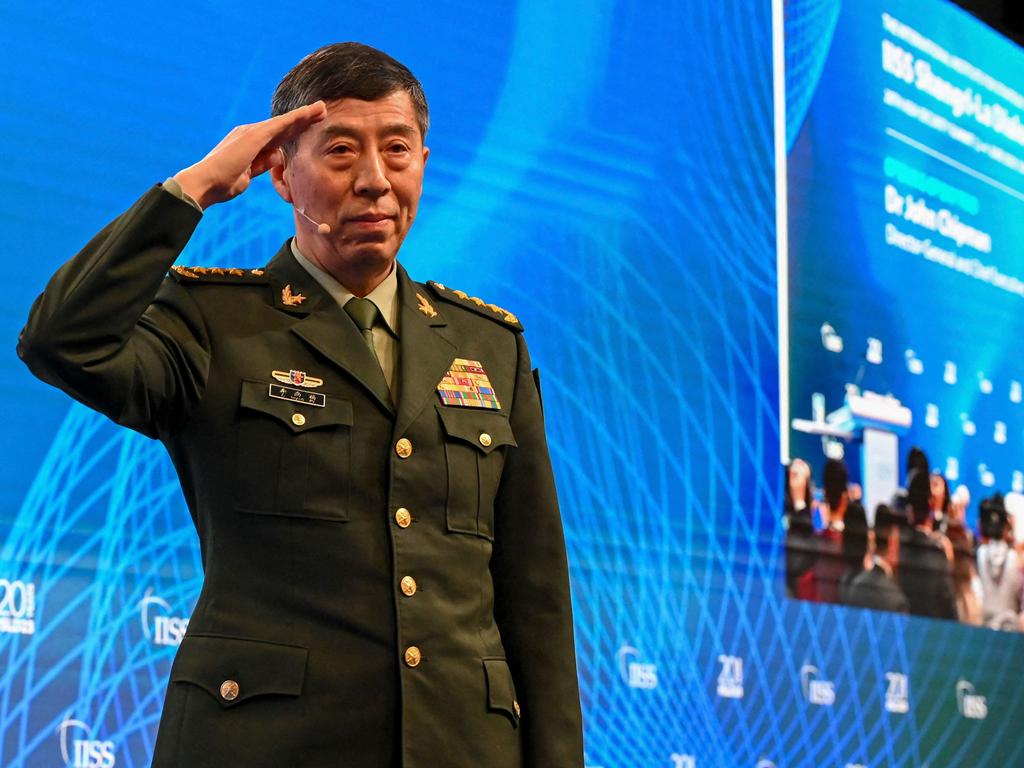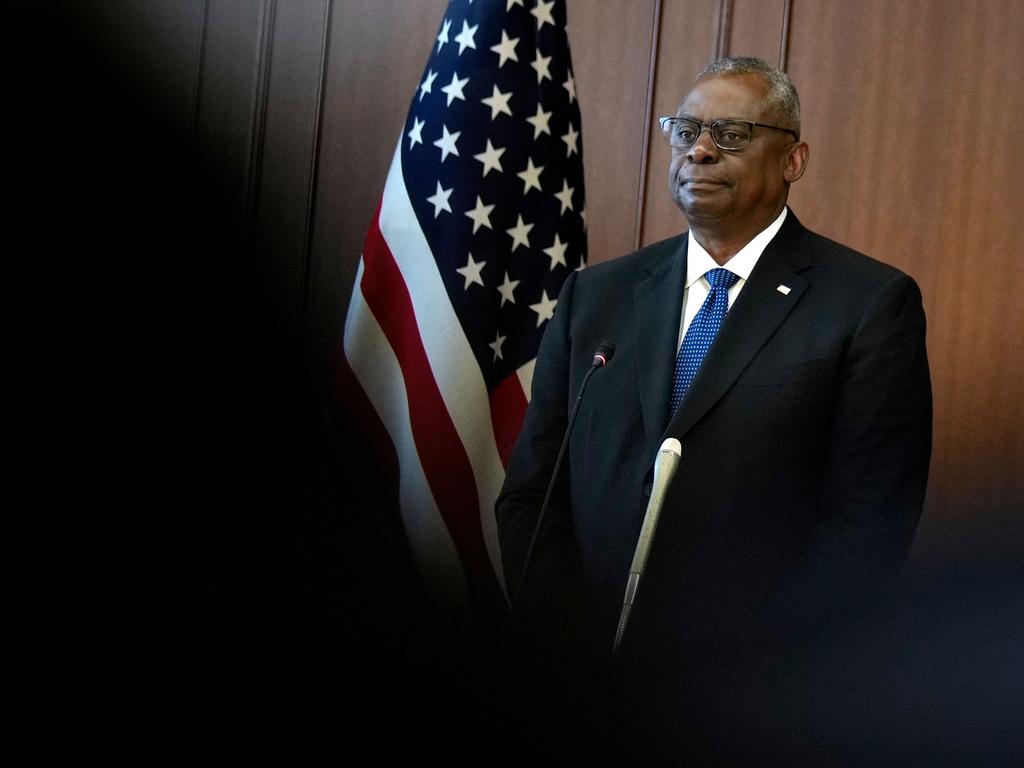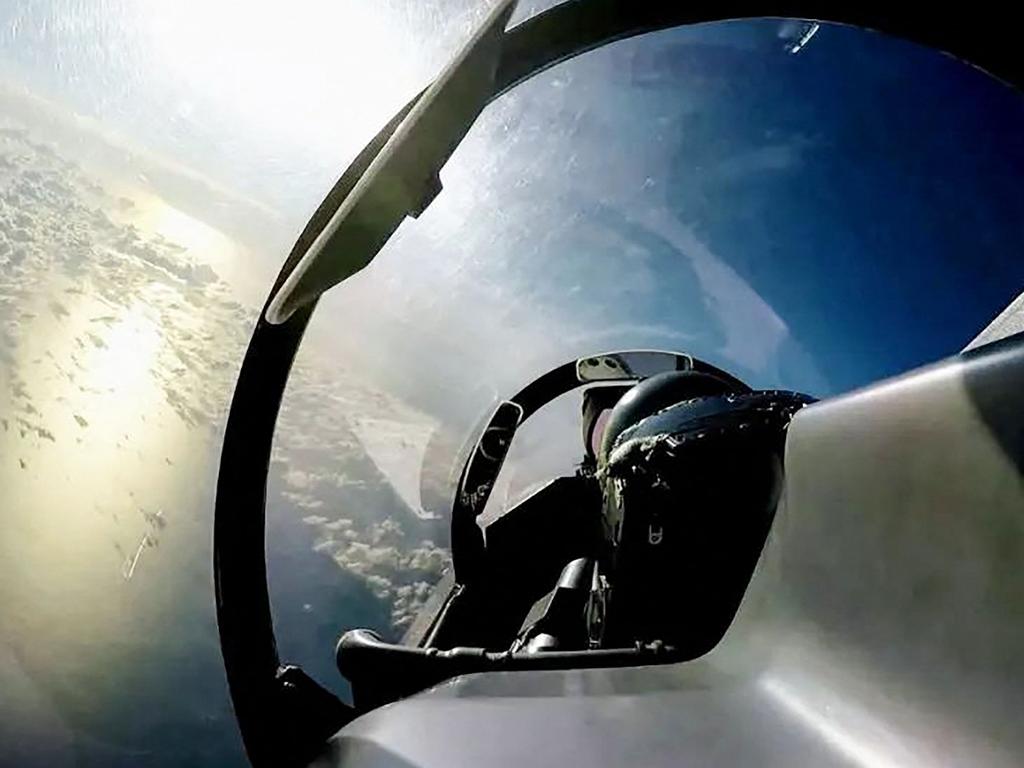Taiwan calls on Australia to send military attache to Taipei over China threats
Taiwan wants Australia to station a military officer in its de facto embassy in Taipei but the government appears to be stonewalling the request.

Taiwan’s Foreign Minister has called on Canberra to install a military attache in the Australian Office in Taipei to help the two liberal democracies work together to prevent “the worst from happening” amid sustained threats of war from China.
Foreign Minister Joseph Wu told The Australian that President Tsai Ing-wen’s government wanted Canberra to station a military officer in its de facto embassy in Taipei to liaise with Taiwanese security agencies, as countries including the US, Japan and Singapore have for decades.
“I think it is very important when the Australian government is paying so much more attention to the regional security issues for the two countries to be able to share their observations, their assessment of the situation,” he told The Australian in an exclusive interview in Taipei.
“I know the Australian Office over here has started speaking with our security agencies, and that kind of development is very important.
“It shows that the Australian government has attached great importance to speaking with our security officials … to understand our perspectives on how to prevent the worst from happening. So this is a great step forward.”
Mr Wu said the Taiwanese government also wanted to put a military attache in Taipei’s de facto embassy in Canberra. Taiwan already does this in countries including the US, Japan, India and the Philippines, which all have “One China” policies that officially recognise Beijing while maintaining informal ties with Taipei.
“I think it is very important for us to have somebody who can speak on behalf of the security agencies over here, especially (Taiwan’s) Ministry of National Defence, so that we can have a systematic or institutionalised way of engaging with each other and for information sharing, assessment sharing, things like that,” he said.
“But again, you know, it is up to ... the Australian government.”
A source in Canberra familiar with the situation said Taipei was disappointed by the Australian government’s stonewalling of the request. “It’s a long, long point of contention,” said the source, speaking on the condition of anonymity because of the extreme sensitivity. “Defence won’t do anything – they subcontract the whole thing to DFAT.”
China puts tremendous pressure on how countries engage with Taiwan, a self-ruled liberal-democracy with which Australia has only had unofficial relations since Gough Whitlam switched recognition to Beijing in 1972. Security ties are particularly sensitive.
Mr Wu – who confirmed that he met Prime Minister Anthony Albanese in 2018 when the then opposition figure led a parliamentary delegation to Taipei – acknowledged exchanging military attaches was a “very subtle issue for the two sides to think about”.
The absence of Australian defence officials in Taipei limits Canberra’s independent information about Taiwan, leaving it reliant on the US and other allies and partners with militaries that communicate directly with the Taiwanese military.
Jenny Bloomfield, Australia’s most senior diplomat in Taipei, has met with Taiwan Defence Minister Chiu Kuo-cheng and other senior Taiwanese security officials. However, the majority of her time is spent on trade, educational and cultural issues.
Australia’s Department of Foreign Affairs and Trade confirmed the posting of Ms Bloomfield, a former Ambassador to Greece, would end in July, a year earlier than many had expected.
Great to host @ANZChamTaipei Chair Jeffrey Chen and board members for an update on Australia-Taiwan trade, investment and business links. Our relationship is at an all time high and our businesses are at its heart. Thank you ANZCham for your support. pic.twitter.com/cDBXXBB5kG
— Jenny Bloomfield (@AusOfficeTPE) June 23, 2023
Sources in Taipei said they hoped Ms Bloomfield, a noted linguist, would be replaced by someone more fluent in Indo-Pacific security issues. However, even then they say that will be no substitute for someone who works for Australia’s Defence department, a bureaucratic world away from the Foreign Affairs department.
Taiwan’s access in Canberra is almost non-existent – even as Australia’s military planners become more concerned about Beijing’s plans for the liberal democracy of 24 million people.
Elliott Charng, Taiwan’s longserving de facto Ambassador in Australia, is not allowed to meet any security officials.
Sources familiar with the situation have told The Australian that a recent delegation that included members of Taiwan’s Defence Ministry was unable to secure a meeting with Australian Defence officials during a trip to Canberra.
The visiting Taiwanese instead spoke with security-focused Australian academics, researchers and think-tankers – a function of the Australian government’s extreme sensitivity about upsetting Beijing, which has reached acute levels ahead of a planned visit to China by Mr Albanese in October.
A delegation from China’s People’s Liberation Army, by contrast, had a meeting with Australia’s Defence department in Canberra in March.
Canberra’s latest snub comes as Taiwan’s security dialogue with the US has thickened substantially in recent years as Beijing has escalated its military threats.
Mr Wu and Mr Tsai’s top security adviser, Wellington Koo, met in Washington in February with senior figures from the Biden administration, including US assistant secretary of defence for Indo-Pacific Security Affairs Ely Ratner, US assistant secretary of State for East Asian and Pacific Affairs Daniel Kritenbrink and National Security Council China director Rush Doshi.
Mr Wu said he would rather “stay quiet” about the discreet annual meeting, which until this year was not publicly acknowledged.
But he said security dialogue between Washington and Taipei was at an unprecedented level.
“We have more senior discussions on security issues, or other issues, than at any time that I have any memory about,” he said.
“And you know, I’ve been in this business for quite a few years.”
In April, the head of Taiwan’s peak intelligence agency revealed that Taipei had partial “real-time” intelligence sharing with the Five Eyes, the US, UK, Canada, Australia and New Zealand intelligence network.
Answering questions from legislators in Taiwan’s parliament, National Security Bureau Director-General Tsai Ming-yen said his bureau was sharing intelligence with the Five Eyes – “and in real time” – following an upgrade last year to his agency’s computer equipment.
More than six in 10 Australians (64 per cent) see the prospect of a military conflict between the US and China over Taiwan as a critical threat, according to new polling by the Lowy Institute.
In the event of a Chinese invasion, more than three-quarters (76 per cent) support “imposing economic and diplomatic sanctions on China”, 64 per cent support “Australia sending arms and military supplies to the Taiwanese government”, and 61 per cent support “using the Australian navy to help prevent China from imposing a blockade around Taiwan”.
US Defence Secretary Lloyd Austin this month said “conflict is neither imminent or inevitable”, rebuffing alarmist recent assessments by senior US military officials and some Australian commentators who have suggested Beijing was preparing for an imminent attack on Taiwan.
Mr Wu said Taipei shared Mr Austin’s assessment.
“It is the same assessment here in Taiwan … The way we see the Chinese preparations is that it is not imminent. And we also think that it can be avoided.”
He said the Tsai government would continue to “work together with other members of the international community, especially with our democratic partners, so that Taiwan can have sufficient self-defence capabilities to deter the Chinese from thinking that they can take Taiwan over very quickly.”
“I think that’s a very good way of deterrence,” he said.
Mr Wu said one of the lessons from Russia’s invasion of Ukraine was how interconnected the international economy is.
“The war in Europe is not only limited to the war in Europe. It has a global impact,” he said, pointing to elevated energy prices and food inflation.
Mr Wu said a Chinese invasion of Taiwan would be even more calamitous.
“Half of global container ships sail through this region, and more than 90 per cent of the most advanced semiconductor chips are produced in Taiwan,” he said.
“Imagine the serious global economic impact it will have.”
China’s Defence Minister Li Shangfu this month told an audience of security officials at Singapore’s Shangri-La dialogue that Beijing continued to favour “peaceful unification” with Taiwan, before declaring that Xi Jinping’s government would never “promise to renounce the use of force”.
Mr Wu said Mr Li’s attempt to cast Beijing as a force for peace in the world was “very ironic”.
“It’s like: ‘You submit to me, right, and you will have peace.’ Of course, it doesn’t work that way in the real world.”
Mr Wu – who during the hour-long interview wore a kangaroo pin given to him by a member of the 2018 Australian parliamentary delegation – welcomed Mr Albanese’s recent calls for China to work with the US to establish “guardrails” to avoid a military catastrophe.
“Australia always stresses the importance of regional peace and stability, and also opposes unilateral change of the status quo and, at the same time, supports Taiwan’s international participation,” he said.
“So the Australian government under the leadership of Prime Minister Albanese, his policies towards Taiwan, have been appreciated by the Taiwanese people.”
Mr Wu met with former prime minister Malcolm Turnbull in late May during a meeting with Mr Tsai. Mr Turnbull – who was making his first trip to Taiwan – chairs the international advisory council of the Centre for Asia-Pacific Resilience and Innovation, a Taipei-headquartered NGO.
Thank you President Tsai for your warm welcome for @caprifdn International Advisory Board. Resilience and innovation in the Asia Pacific are CAPRI’s focus and Taiwan is an inspiring example of both. @syaru@iingwenhttps://t.co/LudiZx5Jiopic.twitter.com/QYcQkmYGz5
— Malcolm Turnbull (@TurnbullMalcolm) May 31, 2023
“He said that he will find more opportunities to come back to Taiwan,” Mr Wu said.
Former prime minister Tony Abbott made his first visit to Taiwan in late 2021 when he gave the keynote address at the Yushan Forum, a foreign affairs-focused conference.“Now he stays in touch with me, and he always calls me his good friend,” Mr Wu said.
Taipei is now working on getting Scott Morrison, the third former Coalition prime minister from the Xi era, to visit.
“We will try. We will definitely try,” Mr Wu said.








To join the conversation, please log in. Don't have an account? Register
Join the conversation, you are commenting as Logout